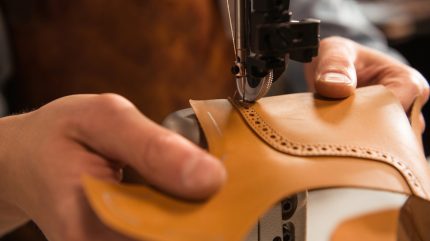
By reducing costs or developing new market segments, Portugal could become a key player in the luxury footwear sector according to EY Parthenon.
Portugal’s footwear, components and leather goods sector currently employs around 40,000 people and exports 90% of its goods to 173 countries.
Miguel Cardoso Pinto, partner at EY Parthenon, said that increased competition and rising costs are both threatening the footwear sector.
The consultancy said Portugal has “several comparative advantages” over Italy, which dominates the luxury footwear industry but is currently “threatened by high production costs, a market dominated by intermediaries and a lack of skilled labour”.
While both Portugal and Italy were found to offer high quality footwear production, Portugal offered lower production costs.
GlobalData’s footwear market data shows the global market for footwear is projected to total $403.9bn by 2026, up from $371.1bn in 2024.
EY Parthenon predicted that luxury footwear, which currently accounts for 8% of the sector, will grow by 4.1% a year up to 2028.
In a study titled ‘The footwear industry’s pathway to luxury’, EY Parthenon argues that reducing costs and developing new market segments are Portugal’s key to positioning itself as a “relevant player in the luxury footwear sector”.
EY Parthenon also suggested that Portugal could increase its productivity using new “industrial processes” and optimise labour costs, while also reducing raw material costs through innovative products.
Strict ESG standards and top quality products were also noted as key to breaking into the luxury footwear sector.
The consultancy added: “Exploring segments with greater value-added potential, entering new geographies, and optimising new stages of the supply chain are three possible paths to a more competitive future.”
The president of the Portuguese Footwear, Components, Leather Goods Manufacturers’ Association – APICCAPS – Luis Onofre said: “We want to be an important international reference. Every year, 24 billion pairs of shoes are produced, about 90% of them in Asia, which means that nine out of ten people wear Asian shoes. We don’t think this is sustainable, on the contrary, we think there is room in the market for players like Portugal.”
In March 2024, The European Apparel and Textile Confederation launched Aequalis-4-TCLF, an EU co-funded project aimed at fostering upskilling and reskilling within the textile, clothing, leather and footwear sectors.



